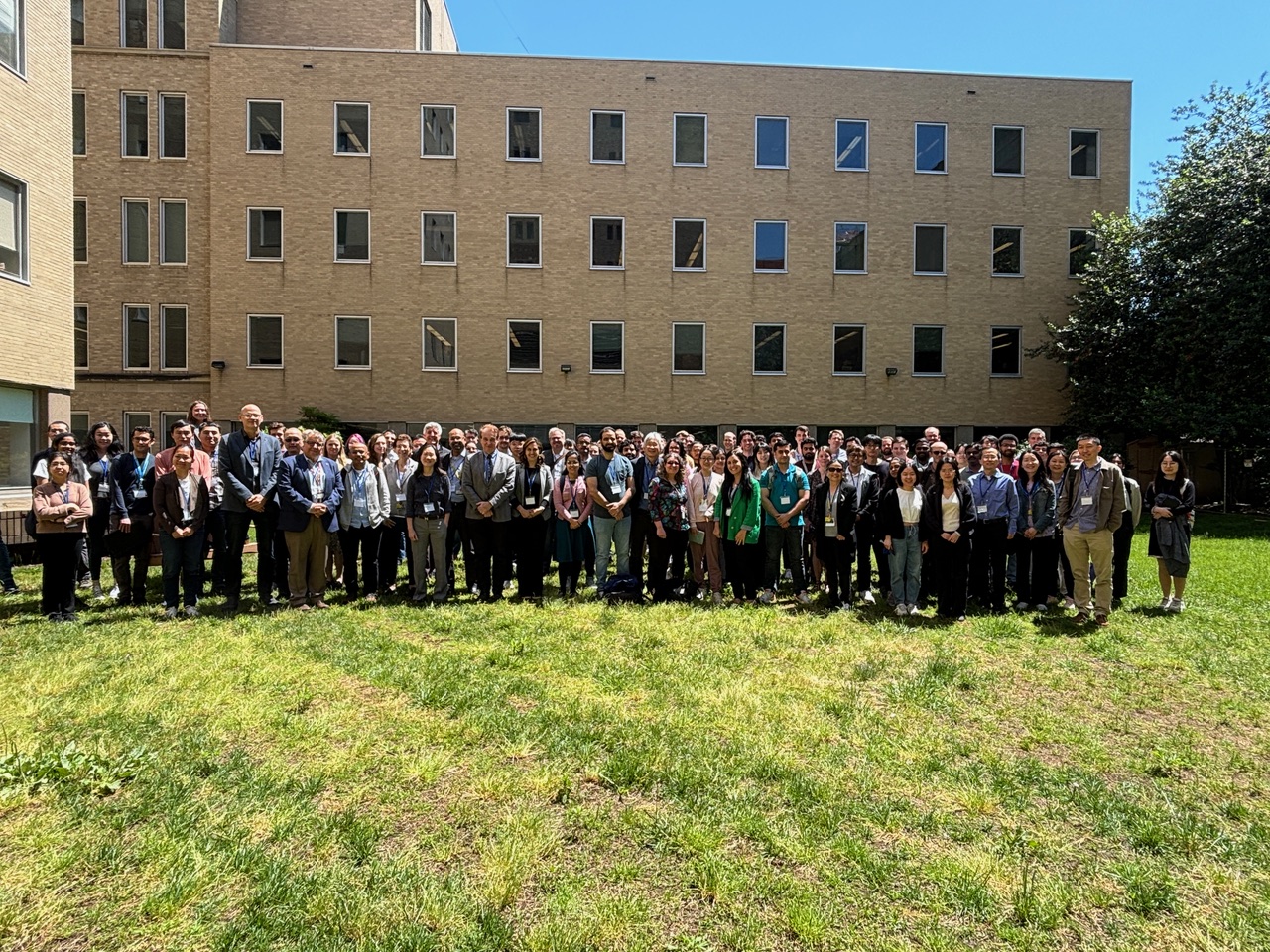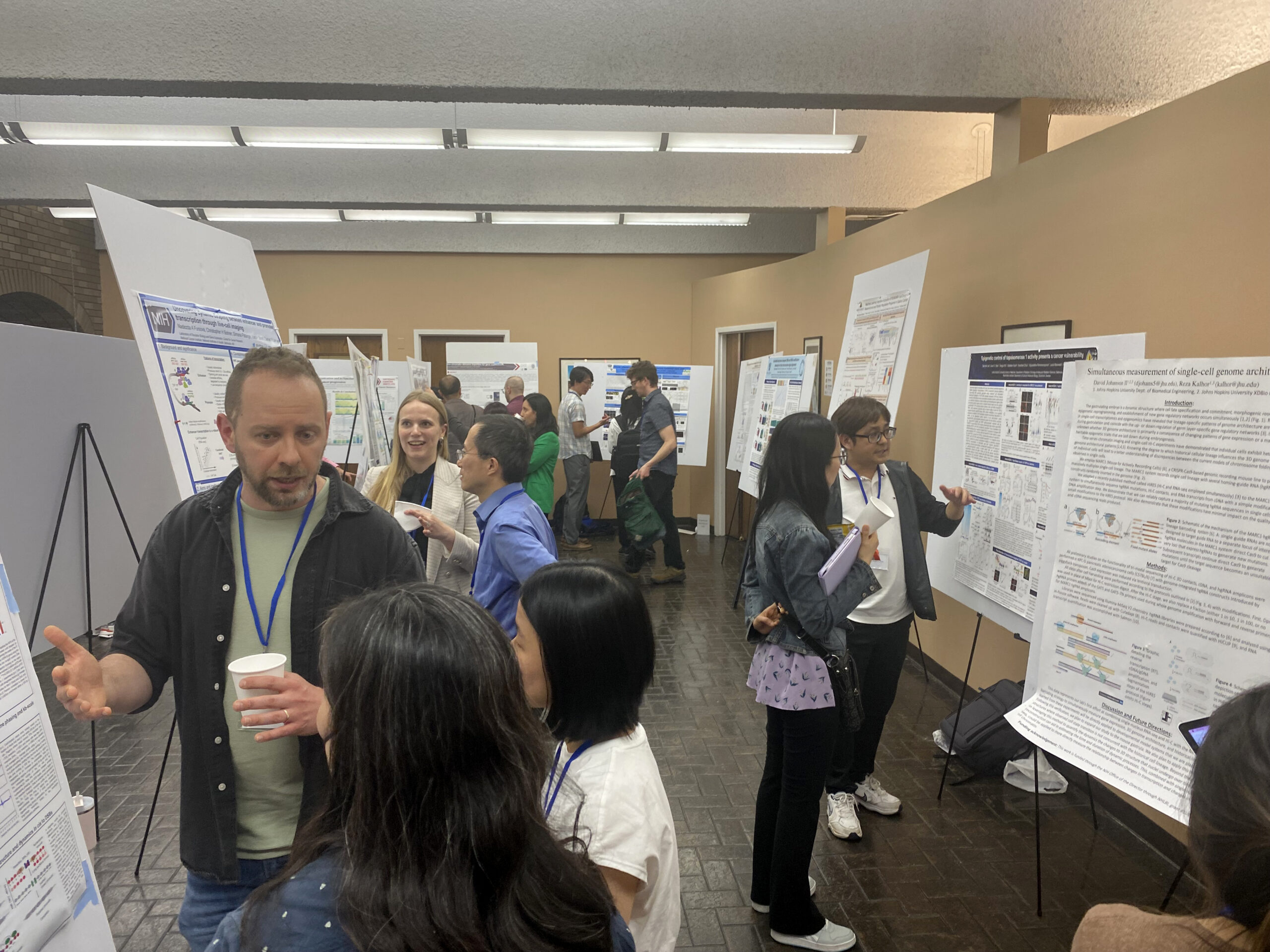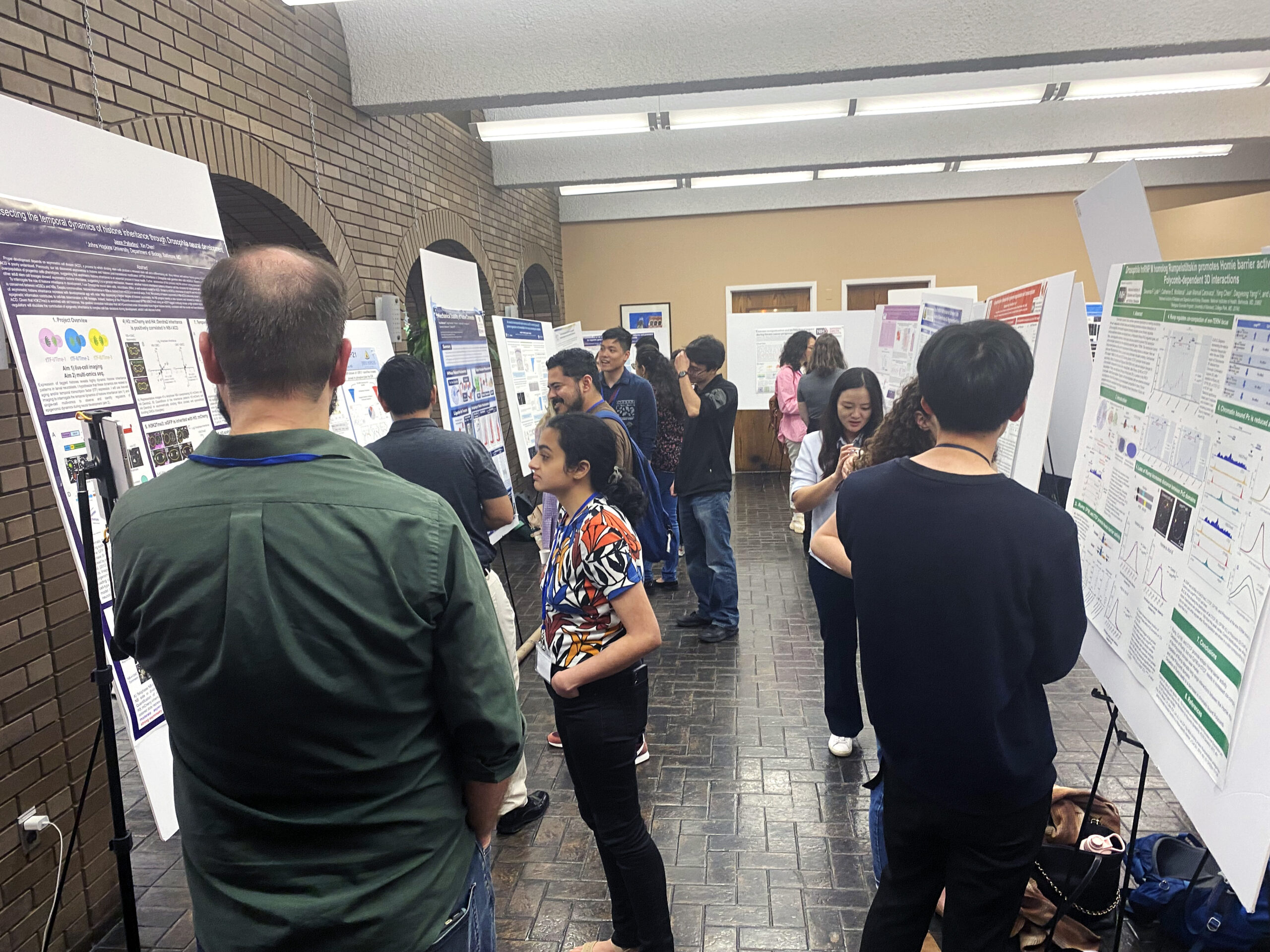
The 2024 Symposium on Epigenome Sciences at Johns Hopkins University was a day of exciting presentations and vibrant discussions, with over a hundred participants. Hosted at Mountcastle Auditorium, the event brought together leading experts, researchers, and students in epigenetics.
The symposium began with Elissa Lei from the NIH, discussing genome organization in 3D and 4D, followed by Thomas Fazzio from UMass Chan Medical School on epigenome regulation during cellular differentiation. The morning sessions concluded with talks by William Greenleaf from Stanford, Kai Ge from the NIH, and our own Elana Fertig, exploring physical genome quantification, enhancer regulation, and spatial multiomics analyses in cancer.
Lively poster sessions provided a platform for researchers to present their findings, fostering engaging discussions and networking. Students and postdocs exchanged insights on topics ranging from DNA repair mechanisms to cellular structure visualization techniques.


Afternoon highlights included Yuan He from Johns Hopkins on DNA repair, Elizabeth Villa from UCSD on cryo-electron microscopy, and Klaus Kaestner from UPenn on 3D chromatin maps. The symposium wrapped up with talks by Christopher Vakoc from Cold Spring Harbor Laboratory on developmental signal transduction and our colleague Eneda Toska on epigenetic mechanisms in cancer.
Kudos to Philipp Oberdoerffer and Laszlo Nagy for organizing such an amazing symposium this year.
We look forward to hosting even more epigenome aficionados next time – stay tuned!
Follow us on
X.com @JHUEpigenome
BlueSky @hopkinsepigenome.bsky.social

